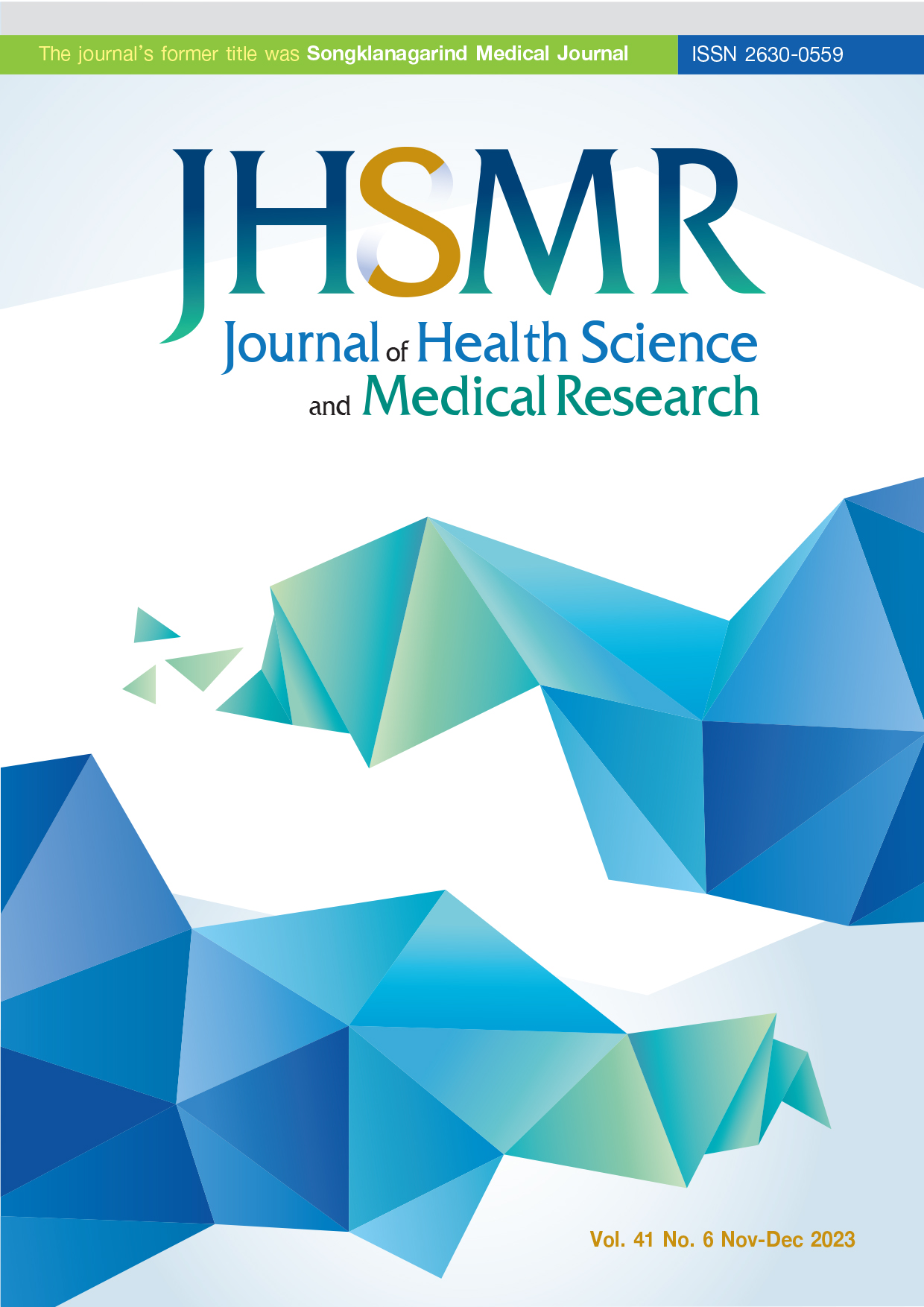A Rare Cause of Refractory Vasodilatory Shock Due to Calcium Channel Blocker Toxicity from Drug-Drug Interaction Between Ritonavir-Boosted Nirmatrelvir (Paxlovid) and Manidipine
DOI:
https://doi.org/10.31584/jhsmr.2023962Keywords:
COVID-19, critically ill patient, drug interaction, drug toxicity, intensive care unit, refractory shockAbstract
Herein, is a reported case of an 86-year-old woman, admitted due to complete atrioventricular block. During admission, she was diagnosed and treated with ritonavir-boosted nirmatrelvir (Paxlovid) for the coronavirus disease 2019 (COVID-19). Four days after initiating the treatment for COVID-19, an oral dose of 20 mg manidipine was administrated. Five hours later, the patient developed hypotension that eventually progressed to refractory shock requiring a maximum dose of 1.82 μg/kg/min of norepinephrine equivalent. Shock reversal dramatically improved within 17 hours after the cause of shock was diagnosed, and her having receiving specific treatment via intravenous calcium administration and high-dose insulin euglycemia therapy (HIE).
References
De Backer D, Biston P, Devriendt J, Madl C, Chochrad D, Aldecoa C, et al. Comparison of dopamine and norepinephrine in the treatment of shock. N Engl J Med 2010;362:779-89.
Brown SM, Lanspa MJ, Jones JP, Kuttler KG, Li Y, Carlson R, et al. Survival after shock requiring high-dose vasopressor therapy. Chest 2013;143:664-71.
Jentzer JC, Vallabhajosyula S, Khanna AK, Chawla LS, Busse LW, Kashani KB. Management of refractory vasodilatory shock. Chest 2018;154:416-26.
Khanna A, English SW, Wang XS, Ham K, Tumlin J, Szerlip H, et al. Angiotensin II for the treatment of vasodilatory shock. N Engl J Med 2017;377:419-30.
Ortoleva JP, Cobey FC. A systematic approach to the treatment of vasoplegia based on recent advances in pharmacotherapy. J Cardiothorac Vasc Anesth 2019;33:1310-4.
Benbenishty J, Weissman C, Sprung CL, Brodsky-Israeli M, Weiss Y. Characteristics of patients receiving vasopressors. Heart Lung 2011;40:247-52.
Alshaya OA, Alhamed A, Althewaibi S, Fetyani L, Alshehri S, Alnashmi F, et al. Calcium channel blocker toxicity: a practical approach. J Multidiscip Healthc 2022;15:1851-62.
McAllister RG Jr, Hamann SR, Blouin RA. Pharmacokinetics of calcium-entry blockers. Am J Cardiol 1985;55:30B-40B.
Graudins A, Lee HM, Druda D. Calcium channel antagonist and beta-blocker overdose: antidotes and adjunct therapies. Br J Clin Pharmacol 2016;81:453-61.
Levine M, Boyer EW, Pozner CN, Geib AJ, Thomsen T, Mick N, et al. Assessment of hyperglycemia after calcium channel blocker overdoses involving diltiazem or verapamil. Crit Care Med 2007;35:2071-5.
Hofer CA, Smith JK, Tenholder MF. Verapamil intoxication: a literature review of overdoses and discussion of therapeutic options. Am J Med 1993;95:43-8.
Salhanick SD, Shannon MW. Management of calcium channel antagonist overdose. Drug Saf 2003;26:65-79.
St-Onge M, Anseeuw K, Cantrell FL, Gilchrist IC, Hantson P, Bailey B, et al. Experts consensus recommendations for the management of calcium channel blocker poisoning in adults. Crit Care Med 2017;45:e306-e15.
Hammond J, Leister-Tebbe H, Gardner A, Abreu P, Bao W, Wisemandle W, et al. Oral nirmatrelvir for highrisk, nonhospitalized adults with covid-19. N Engl J Med 2022;386:1397-408.
Larkin HD. Paxlovid drug interaction screening checklist updated. JAMA 2022;328:1290.
Downloads
Published
How to Cite
Issue
Section
License

This work is licensed under a Creative Commons Attribution-NonCommercial-NoDerivatives 4.0 International License.
























